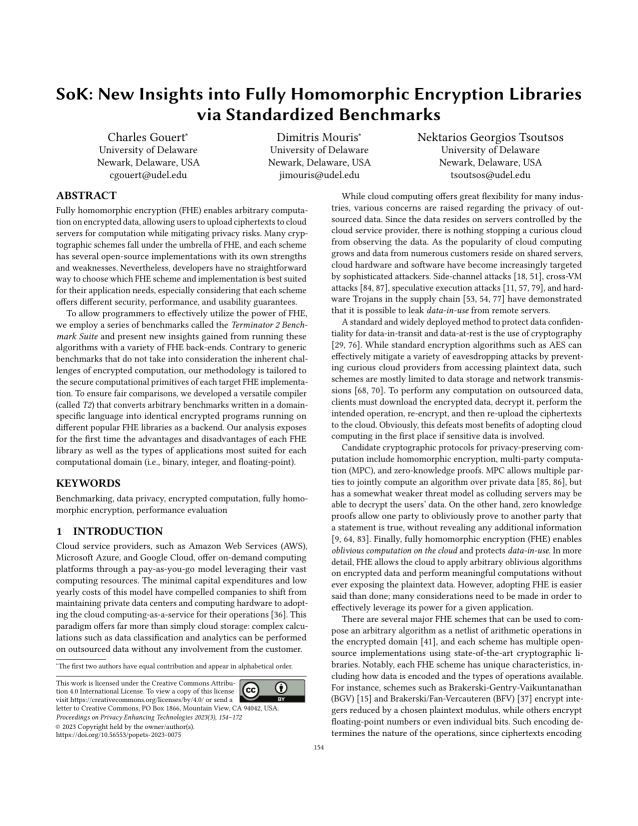SoK: New Insights into Fully Homomorphic Encryption Libraries via Standardized Benchmarks
Authors: Charles Gouert (University of Delaware), Dimitris Mouris (University of Delaware), Nektarios Tsoutsos (University of Delaware)
Volume: 2023
Issue: 3
Pages: 154–172
DOI: https://doi.org/10.56553/popets-2023-0075
Abstract: Fully homomorphic encryption (FHE) enables arbitrary computation on encrypted data, allowing users to upload ciphertexts to cloud servers for computation while mitigating privacy risks. Many cryptographic schemes fall under the umbrella of FHE, and each scheme has several open-source implementations with its own strengths and weaknesses. Nevertheless, developers have no straightforward way to choose which FHE scheme and implementation is best suited for their application needs, especially considering that each scheme offers different security, performance, and usability guarantees. To allow programmers to effectively utilize the power of FHE, we employ a series of benchmarks called the Terminator 2 Benchmark Suite and present new insights gained from running these algorithms with a variety of FHE back - ends. Contrary to generic benchmarks that do not take into consideration the inherent challenges of encrypted computation, our methodology is tailored to the secure computational primitives of each target FHE implementation. To ensure fair comparisons, we developed a versatile compiler(called T2) that converts arbitrary benchmarks written in a domain - specific language into identical encrypted programs running on different popular FHE libraries as a backend.Our analysis exposes for the first time the advantages and disadvantages of each FHE library as well as the types of applications most suited for each computational domain(i.e., binary, integer, and floating - point).
Keywords: benchmarking, data privacy, encrypted computation, fully homomorphic encryption, performance evaluation
Copyright in PoPETs articles are held by their authors. This article is published under a Creative Commons Attribution 4.0 license.


